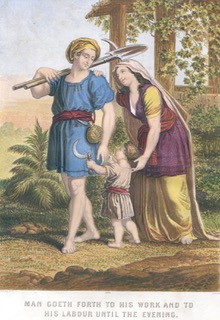
One respected conservative scholar called the ‘strangest book in the Bible.’ It speaks in terms that are high and low, mostly the latter. Written by an older man who ‘had it all,’ made some bad moves, and now speaks as one who is in the depths of depression. It’s famous phrase is vanity of vanities, all is vanity? Is this really the case?
Vanity: def. futile, lost, a waste of time, worthless
The book in question is called Ecclesiastes and it is part of the Bible’s wisdom literature. Perhaps the best way to understand this book is to remember that it is describing life ‘under the sun,’ a phrase used 27 times and apparently no where else in Scripture. Life ‘under the sun’ is talking about natural, carnal living in a fallen world; this is the antithesis of a born-again, fruit-bearing, Spirit-filled life.
If a person’s perspective is 100{69bbf117d57c5bb7a976274429bbd27310bf9eb1a99d0c98c4e3d62608d1fd64} under the sun, in the natural, valuing the things of the world, and not living though to the Almighty, the transcendent, then our future will not just be vain, but eternally lost.
It is of interest how many of the philosophies of today’s world have some sort of reflection in Ecclesiastes. These include:
Pessimism: Things will definitely get worse;
Hedonism: Living for the moment in pleasure, often excessively so;
Existentialism: Living for the moment because tomorrow may not come;
Cynicism: A deep distrust of human nature to the point that even the good is not as good as it seems;
Chauvinism: One group thinks and acts as if they are better than another;
Fatalism: It is as it is, you cannot change it. ‘The stars’ have determined it.
All of this is the world’s wisdom ‘under the sun.’ Unless the God-element is introduced, it will all be vain. The author of Ecclesiastes ought to know.







